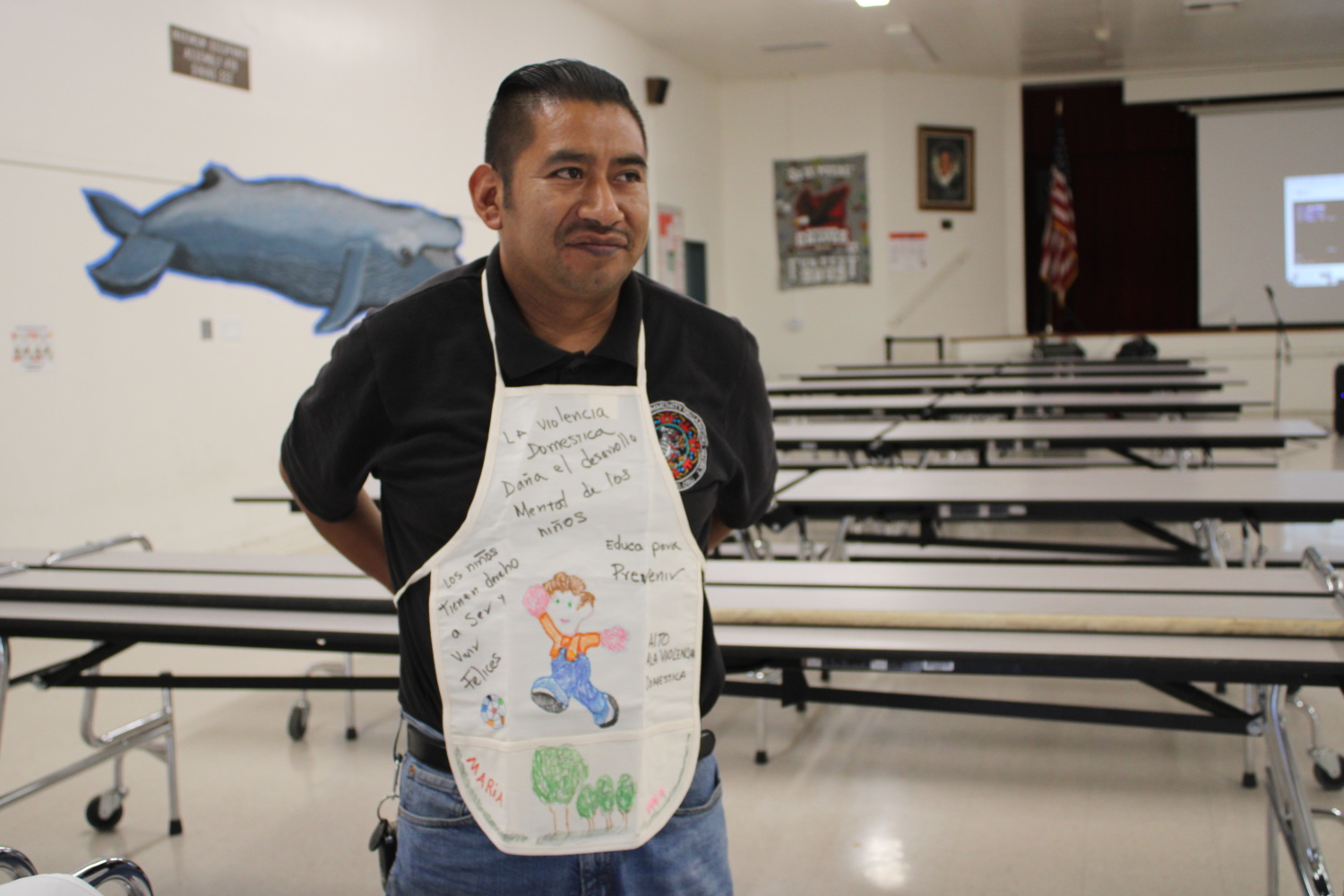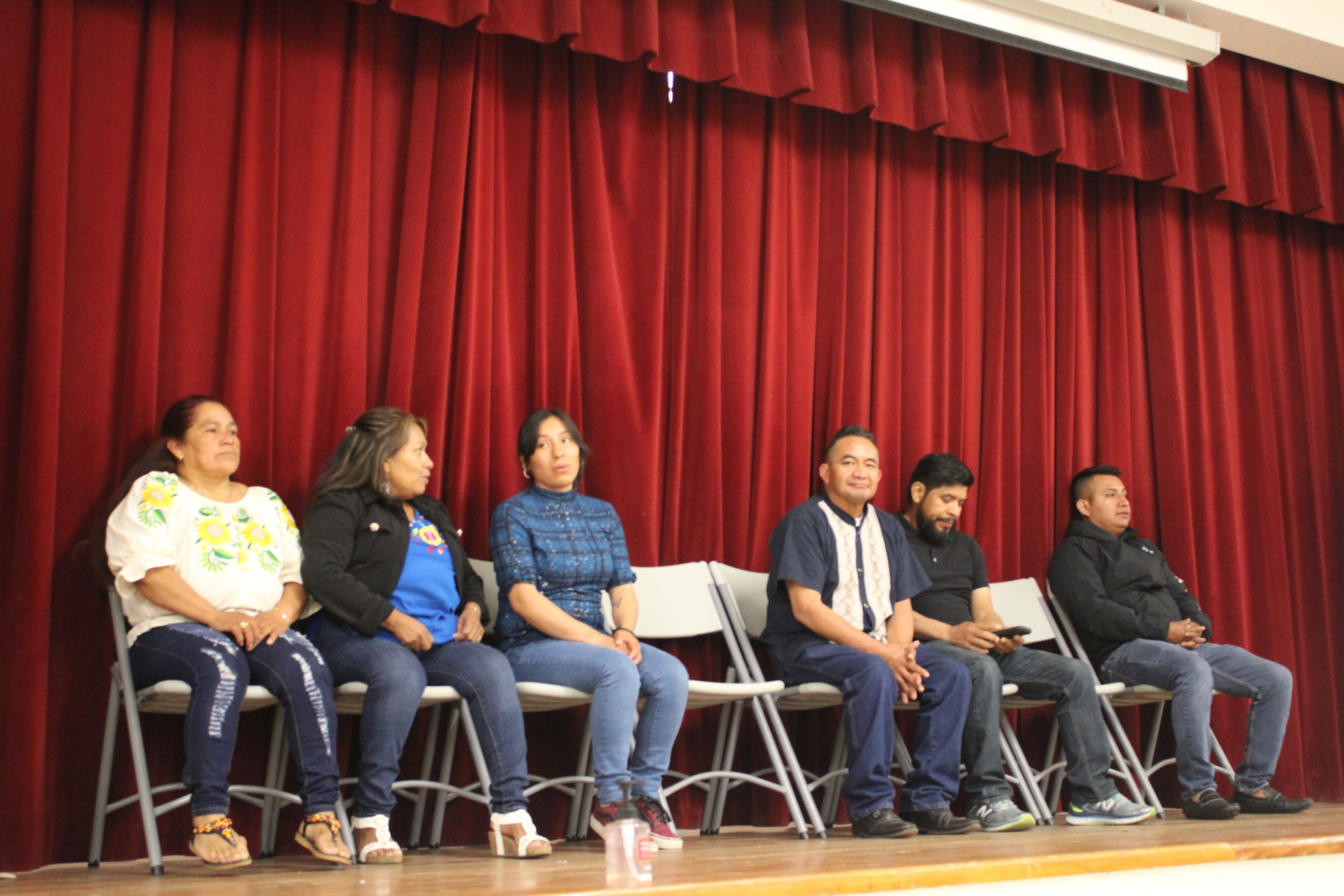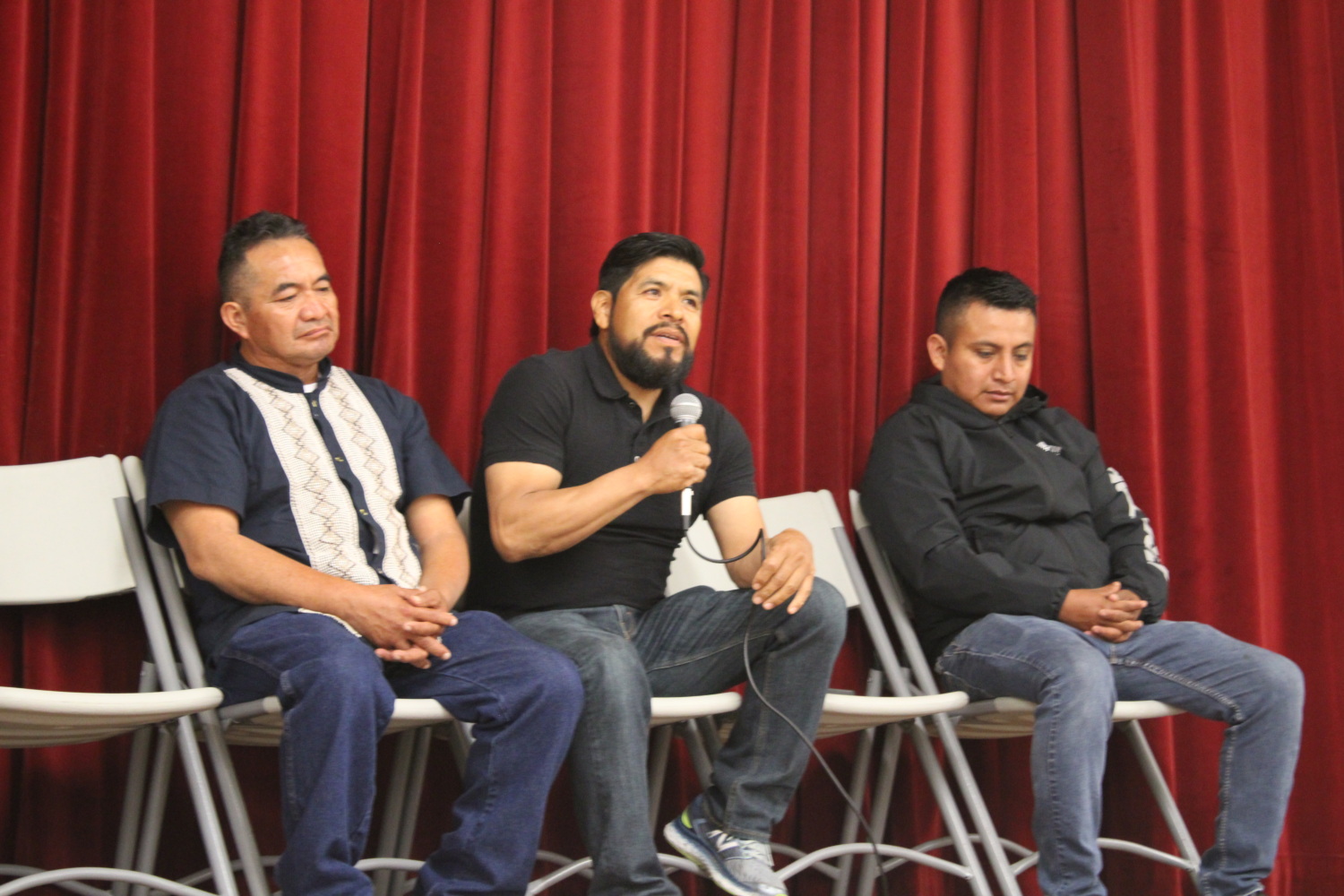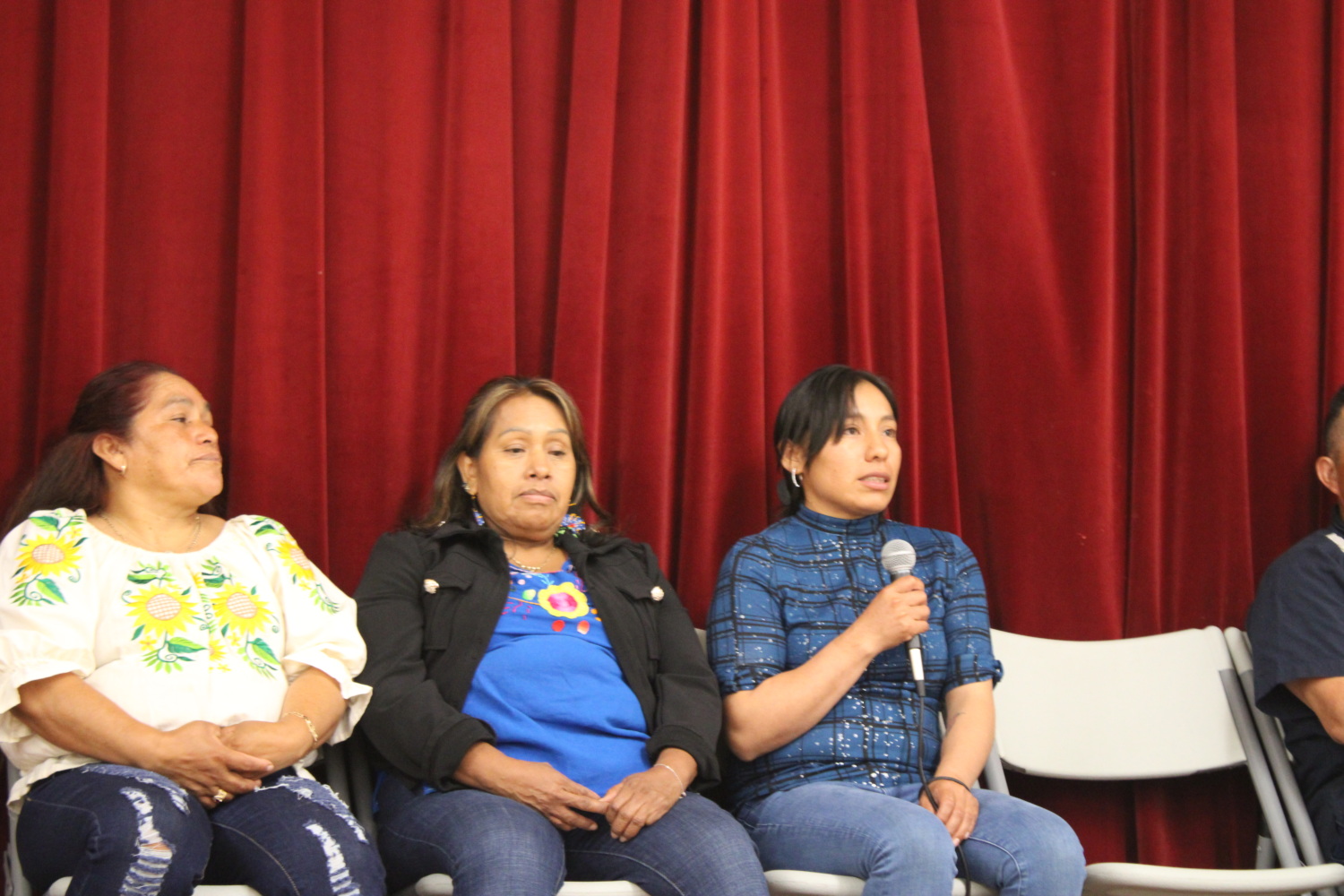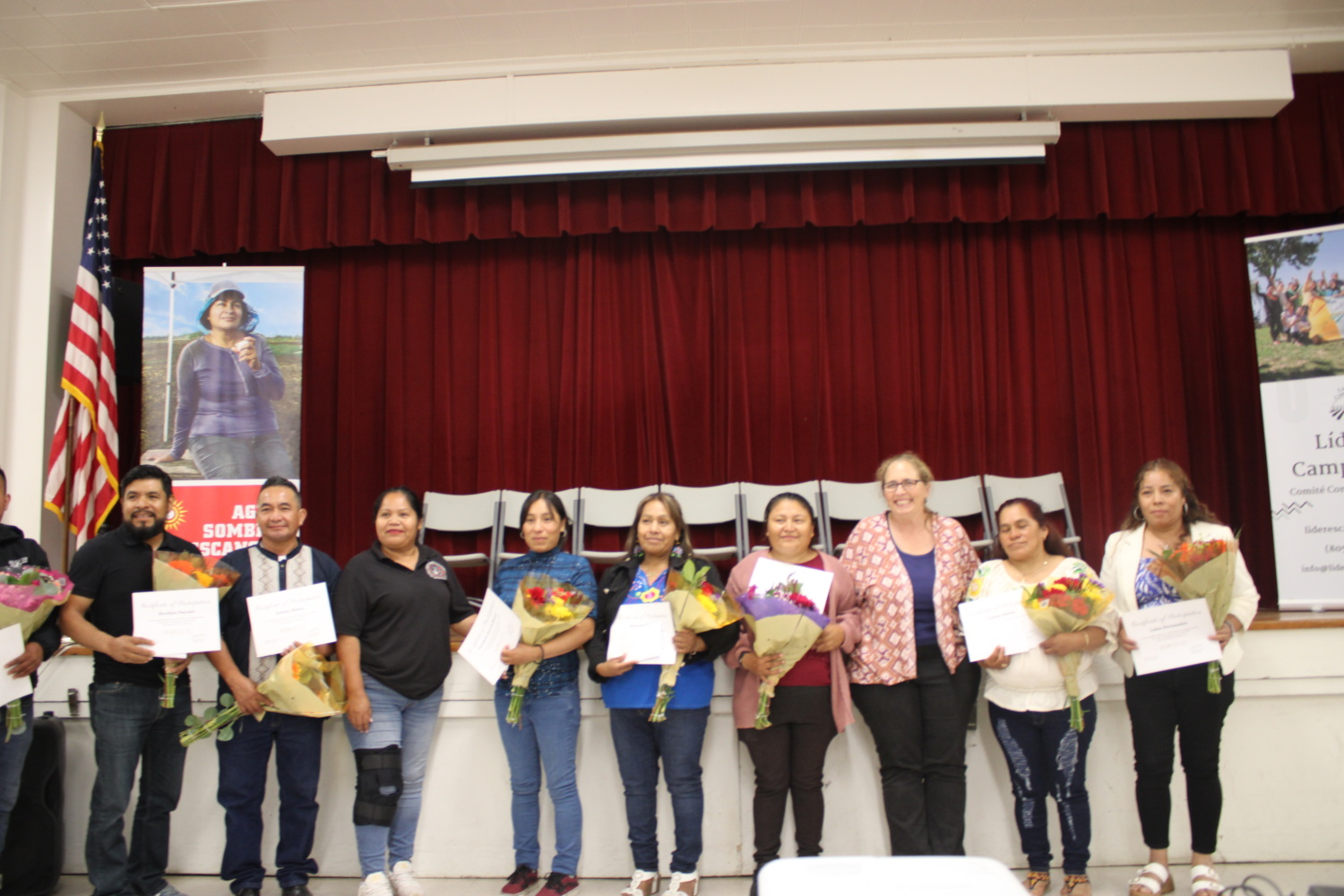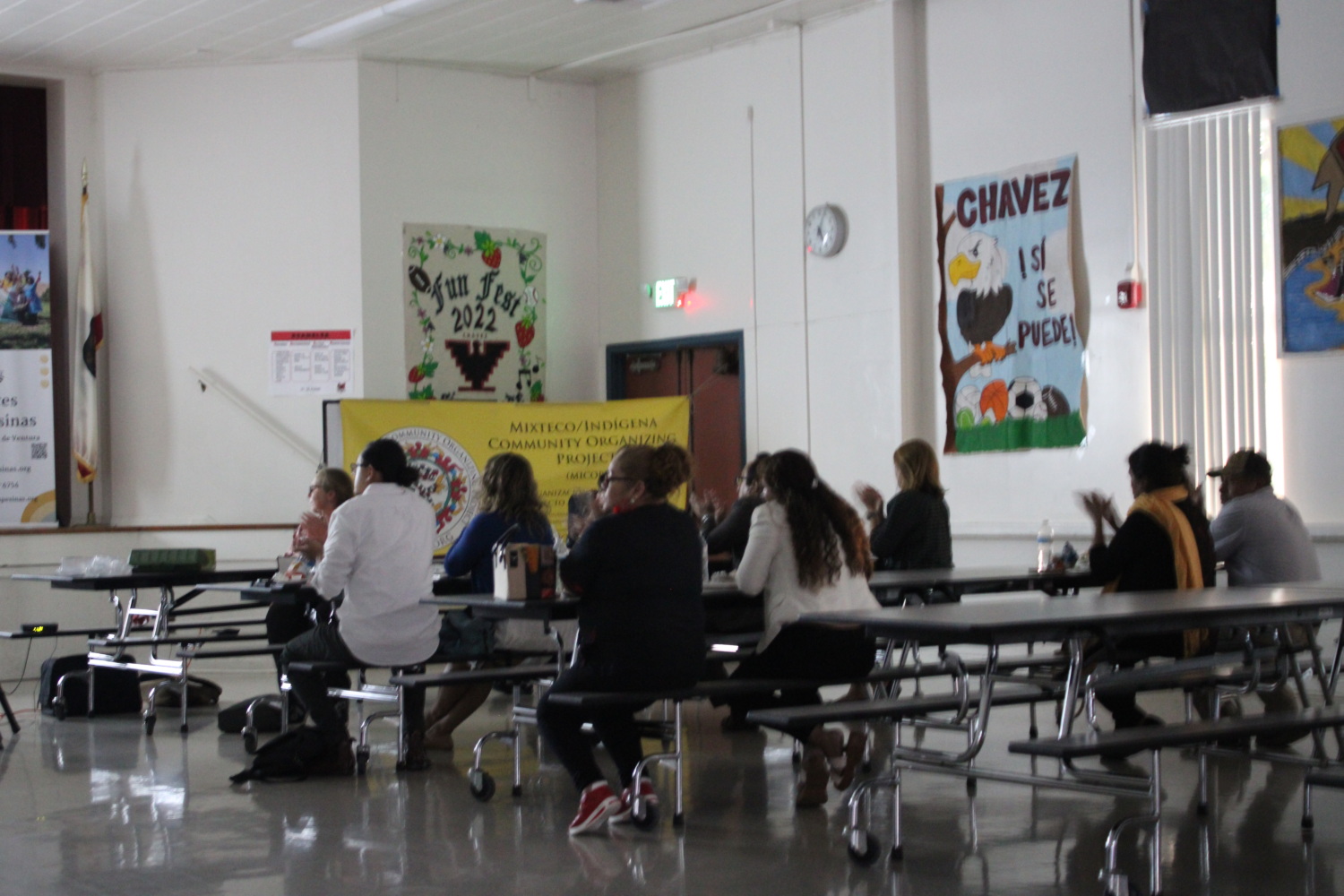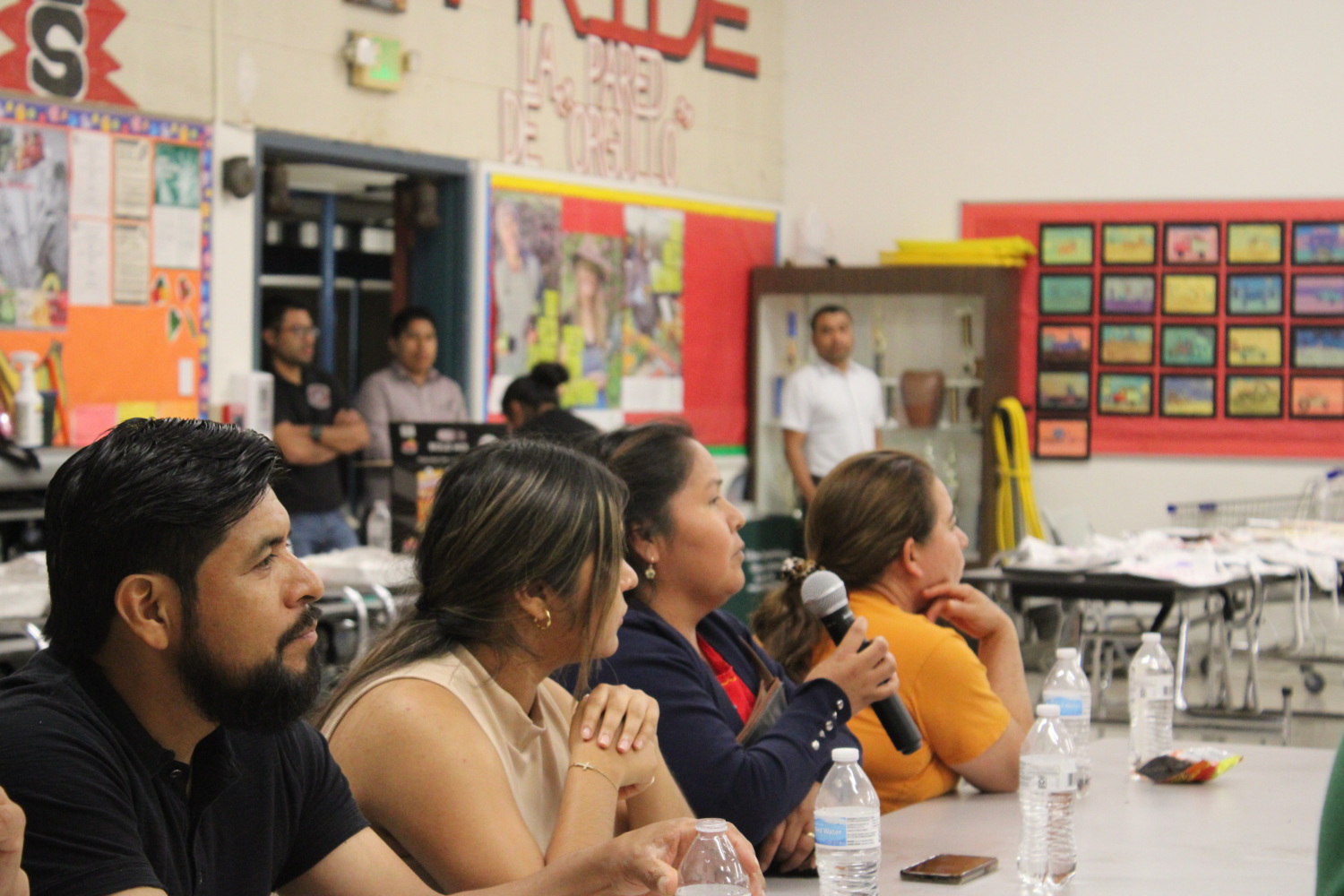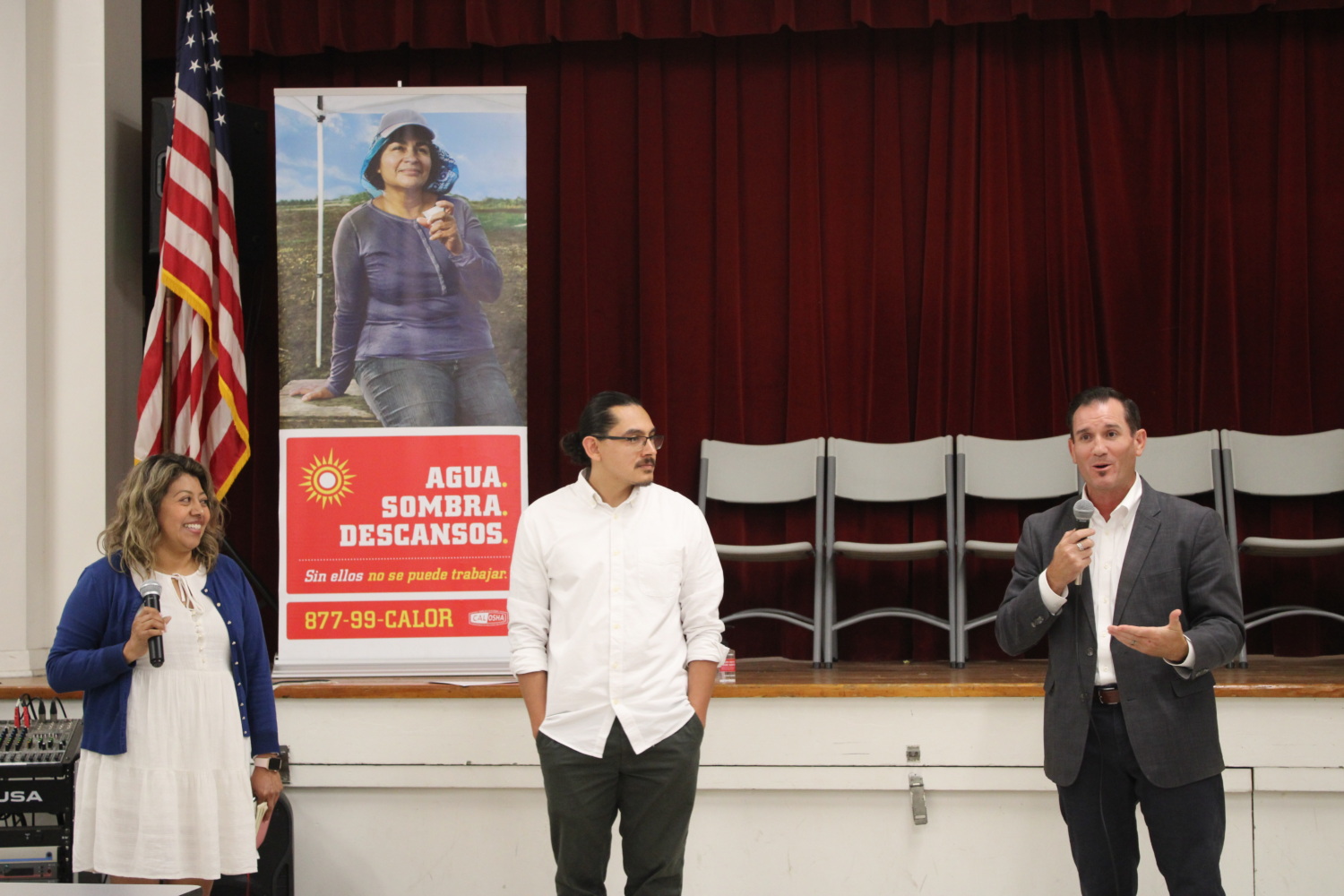Digital Stories: Farmworkers Document the Health Impacts of Climate Change & Growing Need to Advance Health Equity, Climate Justice
Highlights
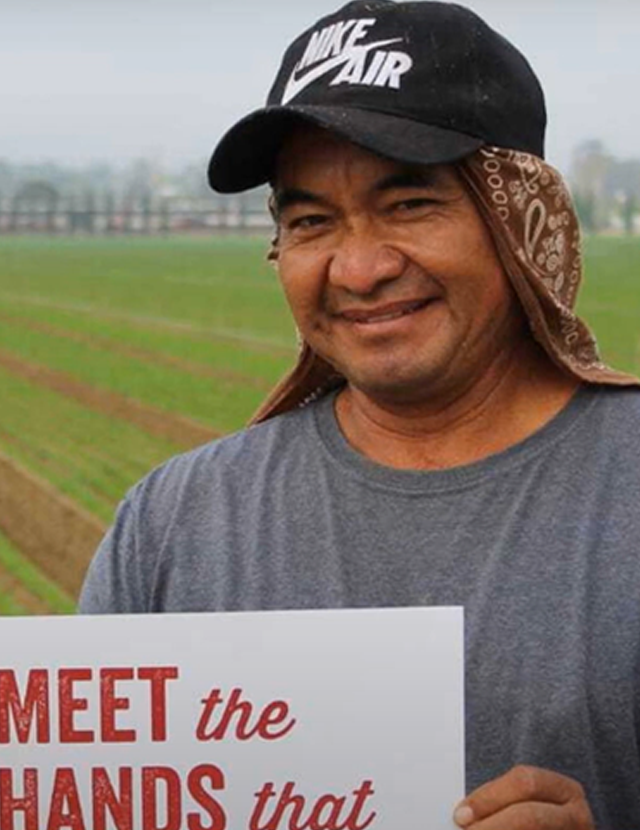
Through their own voices and digital stories, farmworkers in Ventura County, CA documented the impact and health inequities that they experience as a result of climate change and the growing need to advance health equity and climate justice.
-
Focus Areas
Environmental Health, Healthy Communities -
Issues
Climate Change, Nutrition & Food Security, Rural Health, Wildfires & Extreme Heat -
Expertise
Media Advocacy & Communications
Increasing climate change events have placed insurmountable challenges on farmworkers and the exposure and risks due to climate change are not distributed equally, impacting farmworkers more than other populations. Through their own voices and digital stories, seven farmworkers in Ventura County, CA documented the health challenges they experience as a result of working in the fields during climate events.
These powerful and heartfelt stories bear testament to the daily reality that often goes unseen by society and document the growing and urgent need to advance health equity and climate justice. They also help to ensure that indigenous populations are included in the dialogue around climate change and health, workers’ rights and more; and serve as an educational tool to help government agencies involved with agricultural workers be more aware of farmworkers issues and more sensitive to their personal stories. Watch their stories below.
The 2023 Digital Story Project was supported by the StoryCenter, the Public Health Institute’s Achieving Resilient Communities (ARC), Lideres Campesinas, and Mixteco Indigenous Community Organizing Project (MICOP).
2023 Digital Stories
Click on the video icon or links below to watch the digital stories. Please also read below about the challenges and ways that Ventura County farmworkers are advocating for change.
In the Rain it is Challenging/ Bajo La Lluvia Nos Cuesta – by Teodora Garcia Reyes
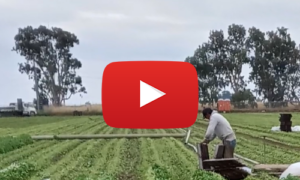 "The rains have had too much of an impact on us, because when we work in the vegetable fields it is more difficult to harvest when it is wet. We wear raincoats but regardless, the rain makes us wet on the outside and sweat makes us wet underneath the raincoat. We put our lives in danger and the cost is too high."
"The rains have had too much of an impact on us, because when we work in the vegetable fields it is more difficult to harvest when it is wet. We wear raincoats but regardless, the rain makes us wet on the outside and sweat makes us wet underneath the raincoat. We put our lives in danger and the cost is too high."
Watch the video in Zapotec with English subtitles →
Watch the video in Zapotec with Spanish subtitles →
We Exercise Our Dignity / Ejercamos Nuestra Dignidad - by Rivelino Pascual
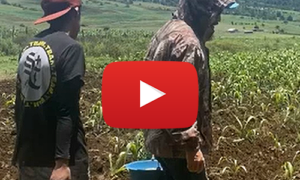 "The supervisor could see that we were tired and thirsty…and would make us work regardless. And we had to put up with it so that we wouldn’t lose our jobs. We would sometimes experience dizziness, headaches and nausea. We didn’t know that these were symptoms of too much sun exposure. The people in large cities do not value us, because they think we are not worth anything because we are from indigenous communities."
"The supervisor could see that we were tired and thirsty…and would make us work regardless. And we had to put up with it so that we wouldn’t lose our jobs. We would sometimes experience dizziness, headaches and nausea. We didn’t know that these were symptoms of too much sun exposure. The people in large cities do not value us, because they think we are not worth anything because we are from indigenous communities."
Watch the video in Purépecha with English subtitles →
Watch the video in Purépecha with Spanish subtitles →
My God Protect Us and Safely Deliver Us Back to our Home / Que Diosito Nos Cuide y Que Volvamos a la Casa Bien - by Celina Alonso
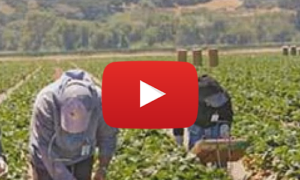 "I felt weak, which I didn’t understand and I fainted. It wasn’t the first time I had been dizzy. A different time, my son and I were working in the blueberry fields and there was no water. My son called me over because he was starting to feel very ill. Later, my son told me to come quickly. He said that the supervisor had thrown out the water."
"I felt weak, which I didn’t understand and I fainted. It wasn’t the first time I had been dizzy. A different time, my son and I were working in the blueberry fields and there was no water. My son called me over because he was starting to feel very ill. Later, my son told me to come quickly. He said that the supervisor had thrown out the water."
Watch the video in Purépecha with English subtitles →
Watch the video in Purépecha with Spanish subtitles →
Our Rights / Nuestros Derechos - by Marisela Mendez
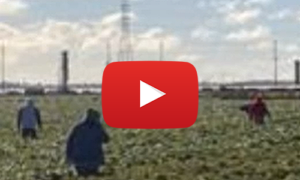 "It was very hot while I was picking strawberries and I had a headache. I stopped working so that I could ask for help because I was feeling very ill. I had to beg the supervisor to not fire me because I am a single mother…I wish they would have more consideration for people. The Lideres Campesinas program has helped me a lot. We now know how to protect ourselves."
"It was very hot while I was picking strawberries and I had a headache. I stopped working so that I could ask for help because I was feeling very ill. I had to beg the supervisor to not fire me because I am a single mother…I wish they would have more consideration for people. The Lideres Campesinas program has helped me a lot. We now know how to protect ourselves."
Watch the video in Mixtec with English subtitles →
Watch the video in Mixtec with Spanish subtitles →
Heart with the Family, Hands with the Earth / Majkuechaeri Minsita Echerintu Anapu Jajkiicha - by Erbino Matteo
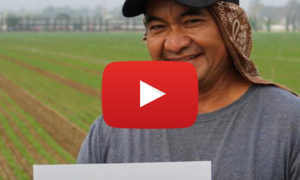 "I have worked all my life in the fields since childhood. I’ve done different kinds of work in the fields and I have many things happen to me. It was hotter than normal. I was trying to hold on. I felt like I was about to faint. I told the supervisor that I needed 5 minutes. He said to wait because we would soon start our break."
"I have worked all my life in the fields since childhood. I’ve done different kinds of work in the fields and I have many things happen to me. It was hotter than normal. I was trying to hold on. I felt like I was about to faint. I told the supervisor that I needed 5 minutes. He said to wait because we would soon start our break."
Watch the video in Purépecha with English subtitles →
Watch the video in Purépecha with Spanish subtitles →
The Impact of Heat & Wildfires - by Eduardo Vasquez
 "In recent years, the heat is more intense and we have been impacted by wildfires. In 2017, we harvested cilantro and kale that was covered in ash. In 2018, I fainted because of the heat while I did raspberry maintenance inside of greenhouses."
"In recent years, the heat is more intense and we have been impacted by wildfires. In 2017, we harvested cilantro and kale that was covered in ash. In 2018, I fainted because of the heat while I did raspberry maintenance inside of greenhouses."
Watch the video in Zapotec with English subtitles →
Watch the video in Zapotec with Spanish subtitles →
The Challenges
More than 40,000 farmworkers contribute to the production of food grown in Ventura County, CA and in California, an estimated 400,000 to 800,000 farmworkers produce more than 400 commodities—representing over a third of the country’s vegetables and over three quarters of the country’s fruits and nuts that feed the nation. Increasing climate change events have led to unique disparities in health and economic impacts that are devastating many farmworker communities. 170,000 farmworkers in California are believed to be migrants from indigenous communities in Mexico and many help to harvest food in Ventura County, CA—these indigenous communities face greater and unique challenges due to climate change.
Farmworkers are often the first to experience the impacts of extreme weather conditions and are more likely to be on the front lines and in the fields during dangerous weather events. Long-standing racism, discriminatory work practices and social barriers (i.e. immigration status, language barriers, poverty, etc.) experienced by farmworkers further compounds health risks and health outcomes due to climate change.
As climate change continues to intensify and increase risks to human health and the environment around us, particularly in vulnerable and farmworker communities, we are confronted with a growing public health crisis.
In 2017, the Thomas Fire severely affected Ventura County communities and at the time was the largest wildfire event in California’s history. Extreme heat and flooding from the rains also took a toll on this community. According to the National Institutes of Health, farmworkers are 35 times more likely to die from heat exposure than workers in other industries.
Farmworkers Advocate for Change
Several grassroots efforts grew out of the need to find solutions to mitigate the impact of climate change on farmworkers in the Ventura community. During 2023, seven farmworker advocates in Ventura County documented and shared their digital stories about the health impacts due to heavy rains, flooding, extreme heat and wildfires and they underscored the need to advance climate justice during a community presentation. The farmworker advocates shared their experiences in their native language – Purépecha, Mixtec and Zapotec – in front of the broader Ventura community to discuss as a collective group. Several participants advocated for increased enforcement activities and improving the responses to violations of health and safety regulations by employers. Read more about the community event in a news update from MICOP and view the slide show below.
The 2023 digital stories represent the second collection of farmworker stories to help bring awareness and growing attention to the mainstream conversation about the health impacts of climate change on farmworker communities and underlying issues that are deepening these challenges. The first collection of stories were created in 2022.
2023 Digital Stories Community Event
For the Digital Story Project, StoryCenter facilitated the storytelling workshop, gathered all of the videos, audio and photos of the participants, created the videos, and co-facilitated the community showcase event. MICOP and Lideres Campesinas engaged the community, recruited participants and organized/disseminated information about the community event.
Achieving Resilient Communities (ARC) is a program of the Public Health Institute that works to mitigate the dangers of climate change and health impacts and increase climate change resilience in vulnerable communities. A growing number of farmworkers in Ventura County, CA serve as leaders and advocates that make up a farmworker advisory board and help to inform community partners with the challenges and solutions to climate change. For more information, visit their website.
Work With Us
You change the world. We do the rest. Explore fiscal sponsorship at PHI.
Support Us
Together, we can accelerate our response to public health’s most critical issues.
Find Employment
Begin your career at the Public Health Institute.
